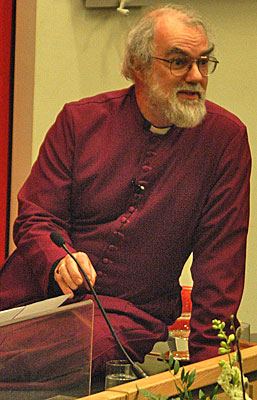 Evidence of the “connection economy” is growing all the time. One of the key characteristics of this new era is the decreasing importance of tradition boundaries, and the increasingly significant role of connections. In particular, geographic barriers are being swept away in a tidal wave of technology-fuelled globalisation. The latest scrap of evidence of this emerging reality comes from the Anglican church (the “Church of England”).
Evidence of the “connection economy” is growing all the time. One of the key characteristics of this new era is the decreasing importance of tradition boundaries, and the increasingly significant role of connections. In particular, geographic barriers are being swept away in a tidal wave of technology-fuelled globalisation. The latest scrap of evidence of this emerging reality comes from the Anglican church (the “Church of England”).
Since 2003 when the American arm of the Anglican church, The Episcopalians, ordained an openly gay man, Gene Robinson, to the position of bishop there has been a growing divide in the global church body representing about 80 million people around the world. In particular, the African Anglicans who are mainly conservative and opposed to homosexuality have been pushing hard for the Americans to be disciplined or even kicked out of the Anglican Communion. The general body of the Episcopal church have refused to budge.
BUT, a number of individual churches that are more conservative have broken ranks. They have left their geographic diocese, and have oversight from another diocese. In the past, this has sometimes been done from “head office” in Canterbury directly, but now something new has happened. These American churches have connected with African diocese, and are now accountable to bishops thousands of miles away. This is actually outside of the Anglican rules, although technically it is within church law.
The bottom line is that the connection economy is impacting everything everywhere. As Thomas Friedman said, “The World is Flat”, and it is seriously Connected, too.
Read more about the Anglican Church in The Economist.


